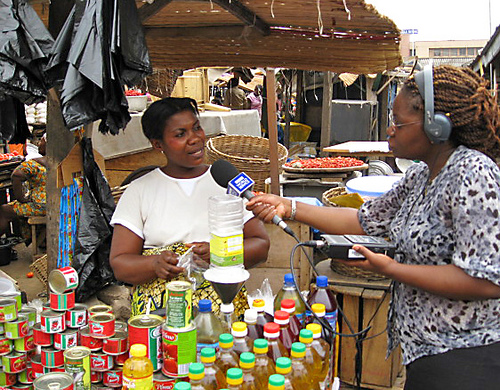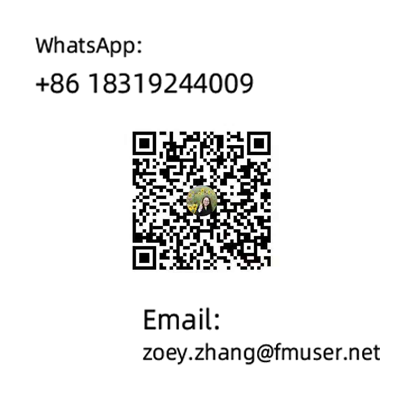Products Category
- FM Transmitter
- 0-50w 50w-1000w 2kw-10kw 10kw+
- TV Transmitter
- 0-50w 50-1kw 2kw-10kw
- FM Antenna
- TV Antenna
- Antenna Accessory
- Cable Connector Power Splitter Dummy Load
- RF Transistor
- Power Supply
- Audio Equipments
- DTV Front End Equipment
- Link System
- STL system Microwave Link system
- FM Radio
- Power Meter
- Other Products
- Special for Coronavirus
Products Tags
Fmuser Sites
- es.fmuser.net
- it.fmuser.net
- fr.fmuser.net
- de.fmuser.net
- af.fmuser.net ->Afrikaans
- sq.fmuser.net ->Albanian
- ar.fmuser.net ->Arabic
- hy.fmuser.net ->Armenian
- az.fmuser.net ->Azerbaijani
- eu.fmuser.net ->Basque
- be.fmuser.net ->Belarusian
- bg.fmuser.net ->Bulgarian
- ca.fmuser.net ->Catalan
- zh-CN.fmuser.net ->Chinese (Simplified)
- zh-TW.fmuser.net ->Chinese (Traditional)
- hr.fmuser.net ->Croatian
- cs.fmuser.net ->Czech
- da.fmuser.net ->Danish
- nl.fmuser.net ->Dutch
- et.fmuser.net ->Estonian
- tl.fmuser.net ->Filipino
- fi.fmuser.net ->Finnish
- fr.fmuser.net ->French
- gl.fmuser.net ->Galician
- ka.fmuser.net ->Georgian
- de.fmuser.net ->German
- el.fmuser.net ->Greek
- ht.fmuser.net ->Haitian Creole
- iw.fmuser.net ->Hebrew
- hi.fmuser.net ->Hindi
- hu.fmuser.net ->Hungarian
- is.fmuser.net ->Icelandic
- id.fmuser.net ->Indonesian
- ga.fmuser.net ->Irish
- it.fmuser.net ->Italian
- ja.fmuser.net ->Japanese
- ko.fmuser.net ->Korean
- lv.fmuser.net ->Latvian
- lt.fmuser.net ->Lithuanian
- mk.fmuser.net ->Macedonian
- ms.fmuser.net ->Malay
- mt.fmuser.net ->Maltese
- no.fmuser.net ->Norwegian
- fa.fmuser.net ->Persian
- pl.fmuser.net ->Polish
- pt.fmuser.net ->Portuguese
- ro.fmuser.net ->Romanian
- ru.fmuser.net ->Russian
- sr.fmuser.net ->Serbian
- sk.fmuser.net ->Slovak
- sl.fmuser.net ->Slovenian
- es.fmuser.net ->Spanish
- sw.fmuser.net ->Swahili
- sv.fmuser.net ->Swedish
- th.fmuser.net ->Thai
- tr.fmuser.net ->Turkish
- uk.fmuser.net ->Ukrainian
- ur.fmuser.net ->Urdu
- vi.fmuser.net ->Vietnamese
- cy.fmuser.net ->Welsh
- yi.fmuser.net ->Yiddish
Media and Election--What Role do the Radio Play?
he media are essential to democracy, and a democratic election is impossible without media. A free and fair election is not only about the freedom to vote and the knowledge of how to cast a vote, but also about a participatory process where voters engage in public debate and have adequate information about parties, policies, candidates and the election process itself in order to make informed choices. Furthermore, media acts as a crucial watchdog to democratic elections, safeguarding the transparency of the process. Indeed, a democratic election with no media freedom, or stifled media freedom, would be a contradiction.
In order to fulfill their roles, the media need to maintain a high level of professionalism, accuracy and impartiality in their coverage. Regulatory frameworks can help ensure high standards. Laws and regulation should guarantee fundamental freedoms essential to democracy, including freedom of information and expression, as well as participation. Meanwhile, provisions such as requiring government media, funded out of public money, to give fair coverage and equitable access to opposition parties, help ensure appropriate media behavior during elections.
The media have traditionally been understood to refer to the printed press as well as radio and television broadcasters. In recent years however, the definition has become broader, encompassing new media including online journalism, and social media. Citizen journalism is widely gaining traction, including in countries where traditional media is either controlled or strictly regulated.

The media play an indispensable role in the proper functioning of a democracy. Discussion of the media's functions within electoral contexts, often focuses on their "watchdog" role: by unfettered scrutiny and discussion of the successes and failures of candidates, governments, and electoral management bodies, the media can inform the public of how effectively they have performed and help to hold them to account. Yet the media also have other roles in enabling full public participation in elections:
by educating voters on how to exercise their democratic rights;
by reporting on the development of an election campaign;
by providing a platform for the political parties and candidates to communicate their message to the electorate;
by providing a platform for the public to communicate their concerns, opinions, and needs, to the parties/candidates, the EMB, the government, and to other voters, and to interact on these issues;
by allowing the parties and candidates to debate with each other;
by reporting results and monitoring vote counting;
by scrutinizing the electoral process itself, including electoral management, in order to evaluate the fairness of the process, its efficiency, and its probity;
by providing information that, as far as possible, avoids inflammatory language, helping to prevent election-related violence.
What Role do the Radio Play?
While the media landscape is ever expanding and diversifying, radio remains the most prevalent and accessible form of media worldwide. Already in 2002, 95% of the world’s population was covered by analogue radio signals. The advent of satellite radio has also greatly expanded the variety of radio programming available to individuals worldwide.
Although satellite radio remains relatively expensive, traditional radio is popular because of its relative cheapness. A handheld radio will still need batteries, but these costs are a fraction of those associated with other forms of media. Furthermore, a lack of electricity is not necessarily a limiting factor for radio. Radio also transcends limitations due to literacy. This makes it a particularly vital source of information for rural or poor areas, or contexts where women are less likely to be literate than men.
A Gallup poll conducted in 23 countries in Sub-Saharan Africa in 2008 revealed that 59% of respondents claimed national radio to be their most important source of information about national events, while a further 9% turned to international radio over other forms of media for this information. Combined, this contrasts starkly to the 3% who utilized newspapers, or the 1% who utilized the Internet, as their most important source of news on national events.
However, although radio prevails as the most accessible source for information on a global geographic level, individual countries show wide variations in radio consumption (despite the general lack of consistent statistics in many countries). For example, in the United States, where in 2012 an estimated 96.7% of households owned a television set - a number comparable to the percentage of Americans tuning into radio every week (93%), the average amount of time an American spent watching TV as opposed to listening to radio was nearly two-fold (33hrs/week versus 14hrs 46min/week).
In addition to understanding access to radio specific to a country, is the importance of understanding an audience’s access to types of programming. This includes recognizing the impact of ownership of radio programs and stations.
If you would like to build a radio station, boost your FM radio transmitter or need any other FM equipment, please feel free to contact us: [email protected].

